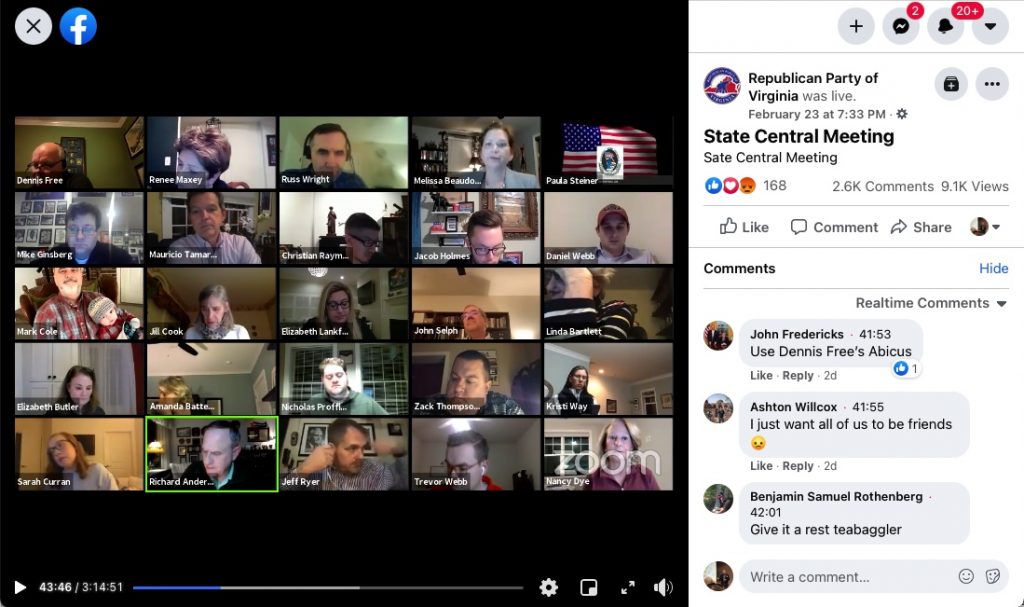Last night I spoke to the Hanover County chapter of the NAACP during their general membership meeting. The NAACP is of course a non-partisan organization, and the group also invited the incumbent Delegate, Scott Wyatt, to join the meeting. He declined.
Besides introducing myself with a basic bio, I used my remarks to make a point about the movement Mr. Wyatt represents. Paraphrasing Frank Wilhoit (from the comments to this Crooked Timber post), I observed that Wyatt represents a “conservatism” that depends on the proposition that the law should protect people like him without binding them while it binds people he doesn’t like without protecting them.
Let me say that again: my opponent wants to construct a social system based on the idea that the law should not treat all Americans the same. He demonstrated this when he constructed a GOP nomination process designed to treat former Delegate Chris Peace unfairly in 2019.
The system he would protect is an immoral and anti-democratic one based on racism, bigotry, and discrimination. It is completely antithetical to the Army core values I’ve lived by since I enlisted as a young man. I could not let him run unopposed for this seat.
Some protect this system because they just believe they are better than others. Some people protect this system because they make money from it. For some it’s a matter of religious belief, and some people are simply afraid of change.
Fortunately, this change is coming – albeit slowly – even to Hanover County. I want to be an agent of that change. I intend to help make that change by reaching out to people of good will across the 97th District, listening to them, and building momentum for social justice in places like Brown Grove. It may take more than one campaign season, but we must build a coalition of citizens who want to create a society where the law protects everyone from hunger, disease, racism, and violence, while binding those who would violate that law, however wealthy and from whatever background.
I need your help to do this. Help me reach your communities so I can listen to people’s concerns and share my vision for improving lives. Help me understand how and when government can help – but how and when it must get out of the way.
Campaign Update: Besides the NAACP membership meeting last night, I’ll be joining the Hanover Democratic Committee Men’s Forum tonight, where Pat Hunter-Jordan of that group will update everyone on the Wegman’s distribution facility in Hanover County and its impact on the Brown Grove community.
Tomorrow night the NAACP will host a forum on Critical Race Theory (CRT) here in Mechanicsville, and I plan to attend. Though gaining wider attention – largely through conservative efforts to scare people with it – CRT at it’s core is a legal academic research project meant to expand thinking of the role of racism in American law and institutions. I studied CRT during my academic days, and I can tell you that conservatives make a variety of false claims about this project, including how and where it’s taught.
And of course, I’ll be personally knocking doors, growing our social media presence, and talking to as many voters in the 97th District as possible. I can use your help.
You can find out more at www.stanforvirginia.org, or feel free to reach out to me directly by email at stan (at) stanforvirginia.org.
If you would like to help financially, you can contribute by donating through this ActBlue link, or by sending a check to Stan for Virginia 97, 8005 Creighton Parkway, Suite C176, Mechanicsville, VA, 23111.
You can also contribute through a paid subscription to my Substack.
Authorized and paid for by Stan for Virginia 97.



